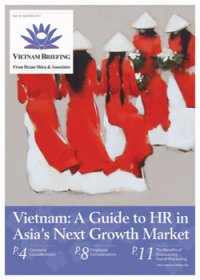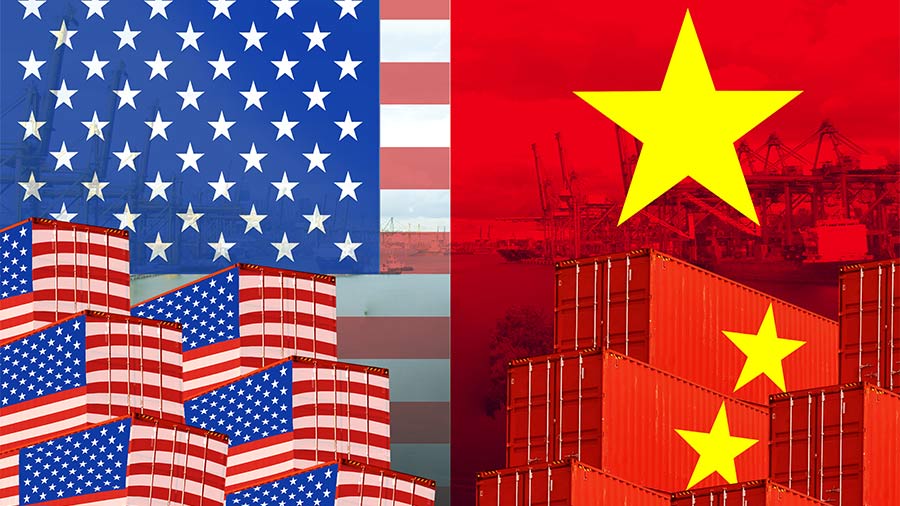Vietnam Loosens Housing Laws for Foreign Investors
HANOI – The Vietnamese government has liberalized its Housing Laws related to property ownership by foreigners. Foreigners will now be allowed to lease or own a maximum of 30 percent of the apartments in a condominium building and up to 250 houses in a ward-level populated area, excluding those in the areas of defense security.
In addition, foreigners entering Vietnam with valid entry visas will be able to acquire a 50-year leasehold tenure. The amendments, which were approved with more than 77 percent of the votes during the last National Assembly, will take effect on July 1, 2015 and are predicted to give a boost to the nation’s burgeoning real estate market. Foreign investors looking to take advantage of this new market are cautioned to seek professional advice before investing into any project.
 RELATED: Dezan Shira & Associates’ Legal and Financial Due Diligence Services
RELATED: Dezan Shira & Associates’ Legal and Financial Due Diligence Services
The revised Housing Law is the latest government effort to boost activity in the property sector, an area that has been underperforming since 2008, when the selling price plunged by 50 to 70 percent. However, recent analyses have shown that the market appears to be at the beginning of an upswing, buoyed by increasing supply. The revisions to the housing law also seek to help the market grow by providing financial incentives to buyers, these include a housing stimulus program together with a loan package worth VND30 trillion (US$1.403 billion), loans of VND700 million (US$32,750) and VND1.05 billion (US$49,192) for 10-year and 15-year terms respectively.
There are clear signs that the market is showing improvement. In 2014, the Vietnam National Bank reports that there have been around 1,477 new real estate projects worth a combined total of US$13.41 billion in investment. Mr. Mac Townsend, Director of CBRE Vietnam – a commercial real estate services group, has stated that he believes the property market is on a path to a strong recovery throughout the nation. By the end of the second quarter of 2014, over 2,500 apartments had been traded, an increase of 60 percent compared to the first quarter of the year.
RELATED: Vietnam’s 12th Draft Law of Residential Housing Expected to be Favorable Towards Foreigners
The new property laws are a positive sign for international enterprises, who have recently poured capital investment into the market, including such notable projects as:
- Riviera Point, Estella, Sedona Suites Royal Park, etc. – condominium buildings across the nation, invested by Keppel Land (Singapore), total investment of US$2 billion
- Saigon Pearl, apartment buildings located in Binh Thanh District – Ho Chi Minh City, invested by Sunwah Group (Hongkong), total investment of US$200 million
- Housing Investment Projects, apartment buildings in Ho Chi Minh City, Hanoi, Quang Ngai, Binh Duong and An Giang, invested by National Housing Organization JSC (Vietnam – Singapore – Korea), total investment of US$1 billion
Key investment destinations that foreign investors are keeping an eye on include such areas as Binh Duong, Ho Chi Minh City, Da Nang, and Hai Phong. These regions have advantageous geographic locations and stable economic growth, making them perfect for those looking to benefit from the growing wave of business investment into the country.
Despite its recent loosening of the foreign-owned property laws, in terms of levels of investment, Vietnam has fallen behind many other Asian countries, such as Hong Kong, Singapore, Thailand, Malaysia, and the Philippines, all of which already allowed foreigners to acquire property and have seen their real estate market’s blossom. It remains to be seen if foreign property investors will continue to remain wary of Vietnam’s property market, but given the need of many investors, such as those in China, who need a safe and dependable location for their money, Vietnam could be well placed to reap a property boom in the years to come.
Asia Briefing Ltd. is a subsidiary of Dezan Shira & Associates. Dezan Shira is a specialist foreign direct investment practice, providing corporate establishment, business advisory, tax advisory and compliance, accounting, payroll, due diligence and financial review services to multinationals investing in China, Hong Kong, India, Vietnam, Singapore and the rest of ASEAN. For further information, please email vietnam@dezshira.com or visit www.dezshira.com.
Stay up to date with the latest business and investment trends in Asia by subscribing to our complimentary update service featuring news, commentary and regulatory insight.
Related Reading
 Vietnam: A Guide to HR in Asia’s Next Growth Market
Vietnam: A Guide to HR in Asia’s Next Growth Market
In this issue of Vietnam Briefing, we attempt to clarify human resources (HR) and payroll processes in Vietnam. We first take you through the current trends affecting the HR landscape and then we delve into the process of hiring and paying your employees. We next look at what specific obligations an employer has to their employees. Additionally, we guide you through the often complex system of visas, work permits, and temporary residence cards. Finally, we highlight the benefits of outsourcing your payroll to a “pan-Asia” vendor.
 Tax, Accounting, and Audit in Vietnam 2014-2015
Tax, Accounting, and Audit in Vietnam 2014-2015
The first edition of Tax, Accounting, and Audit in Vietnam, published in 2014, offers a comprehensive overview of the major taxes foreign investors are likely to encounter when establishing or operating a business in Vietnam, as well as other tax-relevant obligations. This concise, detailed, yet pragmatic guide is ideal for CFOs, compliance officers and heads of accounting who need to be able to navigate the complex tax and accounting landscape in Vietnam in order to effectively manage and strategically plan their Vietnam operations.
 An Introduction to Doing Business in Vietnam 2014 (Second Edition)
An Introduction to Doing Business in Vietnam 2014 (Second Edition)
An Introduction to Doing Business in Vietnam 2014 (Second Edition) provides readers with an overview of the fundamentals of investing and conducting business in Vietnam. Compiled by Dezan Shira & Associates, a specialist foreign direct investment practice, this guide explains the basics of company establishment, annual compliance, taxation, human resources, payroll, and social insurance in the country.
- Previous Article Key ASEAN Industries in Vietnam for Foreign Investors
- Next Article Setting Up a Foreign-Owned Travel Business In Vietnam and China
































